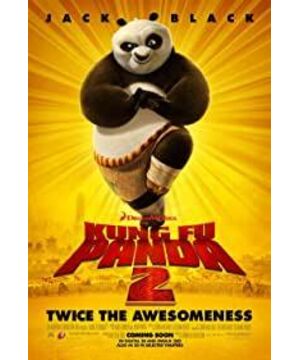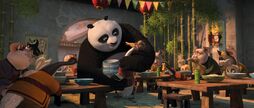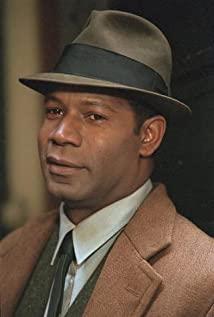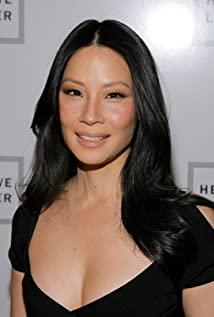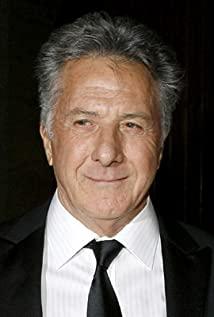The key point is that when we say "cultural strength" may be a bit vague, self-confidence in values is the secret. Compared with China, which has chaotic values during the transition period, the United States has a clear and relatively confident value system underpinning it, which contributes to the success of this type of film. Hollywood is good at using some value elements that are deeply rooted in the hearts of the people. This is even more obvious when shooting movies for families to watch. Most Americans have a clear view of family growth, and the social recognition of related concepts is relatively high. For example, in terms of parent-child relationship, Chinese people value blood ties more, while Americans value family relationships that are cultivated, such as whether they spend time together (Abao and Dad cook together), and how the quality of this time is. These scenes look very Chinese and very American in their bones. The director is doing "the United States as the body, China for the use". The film actually has more American elements. In other details, the director also tries to stay close to American reality. For example, the panda running on the street looks like a scooter that American children play. It is just a costume version, which is clumsy and funny. During the screening, I heard the children laugh constantly, indicating that the children liked the film very much.
The box office popularity of this film is mainly due to the good combination of entertainment elements. It may not be the credit of the Chinese elements. There is no need to be complacent about this, and there is no need to blindly boycott it. If the director started to use Australian kangaroos instead of Kung Fu Panda, the same effect can be achieved, but the Chinese market is bigger. After watching this film, I went online to read the reviews of the American film review website "Rotten Tomatoes" and the famous film critic Roger Ebert and others, and found that they rarely commented on "Chinese elements", but the film's gains and losses as an entertainment film.
Not to talk about Chinese elements, it means that these elements are seamlessly put into the film, no longer abrupt, and become the texture and texture of the film itself. Many details of the movie are handled with great ingenuity, such as the "folk music" praised by Chinese audiences, which combines fighting scenes and nonsensical humor. Americans can hear Chinese music, and not knowing what it is does not affect their appreciation. But the Chinese can hear the name of the song, so that everyone can get what they need and suit the needs of different markets. It's really shrewd. When we spread Chinese culture to the outside world, sometimes we are too impatient. Suddenly we hope that the other party will realize what culture I am talking about. On the contrary, the other party will feel that the preaching is too strong, sometimes it feels boring, and sometimes it feels cultural aggression. .
Hollywood has helped us expand our understanding of the connotation of "Chinese elements". Over the years, I have observed that from Chinese literary groups to occasional performances in the United States, to Confucius Institute-style systematic cultural output, the "Chinese elements" to be displayed are often narrow-minded and rigid. In the selection of materials, it is limited to elements recognized as "cultural" such as clay sculpture, wood carving, martial arts, and traditional Chinese painting. To make culture alive, the thinking should be broadened. In a country as big as China, there are too many "Chinese elements" to see only a few points. Scholars in China have noticed this narrow-minded problem. A few years ago, I contacted a doctor Zhou from China Normal University who taught in a small town in West Virginia. She is a cultural scholar. The phenomenon she said is worth thinking about. When she went to the countryside to collect customs, sometimes the cultural cadres of the county and city would tell her, what's so interesting about that? You can look at what we have compiled. As a scholar, Professor Zhou is more interested in collecting original "cultural" products that have not been filtered by culture. Teacher Zhou said that these cultural cadres can only sort out the culture of "cultural people" in their minds, and may not have the original flavor and freshness of the folks. This kind of culture, which we regard as the "canon", may not be able to continue to be punctual if it changes its context.
Those who are specifically responsible for cultural output may not know this truth. Not long ago, I had the opportunity to communicate with a domestic cultural unit, and the other party tried to launch a large-scale exhibition to showcase outstanding Chinese cultural heritage such as paper-cutting, calligraphy, traditional Chinese painting, and embroidery. The American counterparts, on the other hand, hope to promote school-level cooperation led by the cultural unit, and hope that through the mouths of elementary and middle school students, they can describe their respective cultures. They think this is the "real guy." Here, we see that the two sides have very different understandings of the cultural connotation and the way of cultural exchanges. However, the formation of this difference is not a matter of one or two people a day or two. To change, it requires the joint efforts of cultural groups and individuals.
Since Hollywood does not have the fixed mindset of Chinese "cultural people" on cultural understanding, it is rather open. It will surprisingly find some fresh and lively elements and infuse the "Chinese elements" with new connotations. For example, in "2012", a group of migrant workers who are obscure in China enters the drama. In the sequel of "Kung Fu Panda", we saw Dan Dan noodles and small vendors on the street. I even saw Wangye Shen's "urban management" role set on the street, the little white rabbit who was embarrassed to sell food. The big steel smelting in China during the famine years, many American audiences knew a little bit, and it was also included in the film.
Since the Chinese market is huge, more Chinese elements will be used by Hollywood after "Kung Fu Panda". This cannot be stopped, and there is no need to resist it. Just use Hollywood as a cultural export trainer. In addition, looking at what is "Chinese elements" from the eyes of others, watching movies such as "Kung Fu Panda", and reading books such as "Walking China" can also be regarded as learning from a fresh perspective and broadening Chinese cultural self-improvement and culture. Exchange ideas.
Originally published in "Oriental Morning Post" on June 7, 2011
View more about Kung Fu Panda 2 reviews


